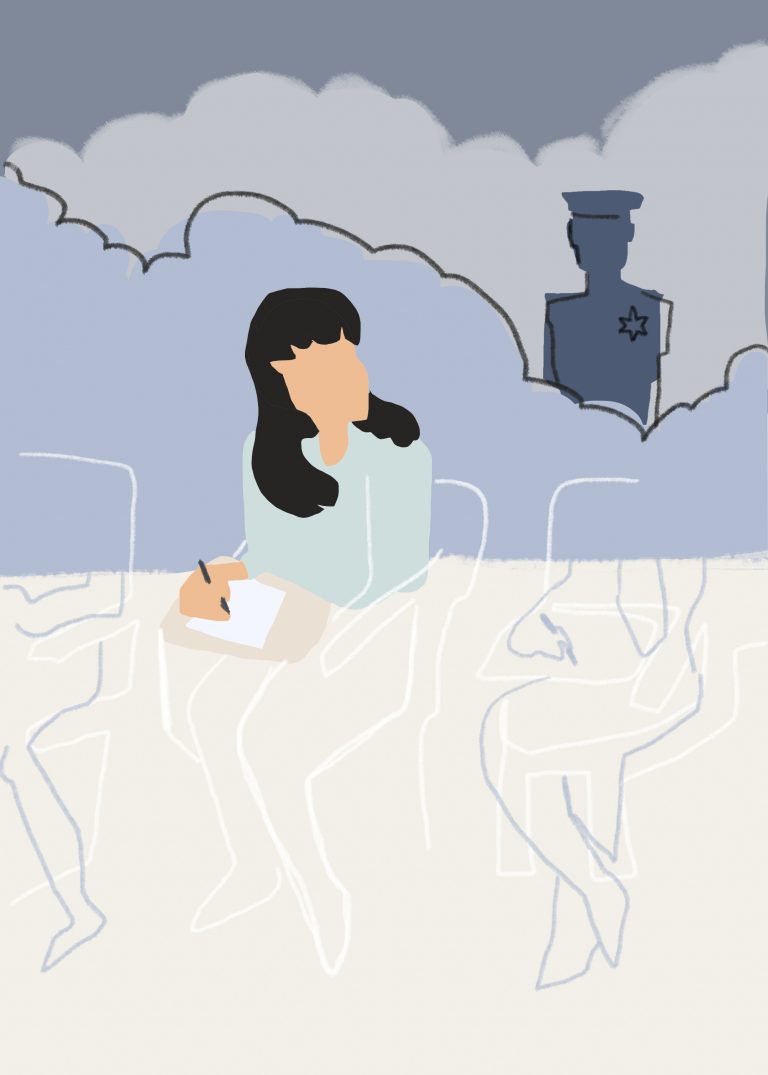
Annette Ding
Staff Writer
Under President Donald Trump’s administration, undocumented students are on shakier ground than ever.
In January, U.S. District Judge William Alsup issued a nationwide injunction on Trump’s executive order to rescind the Deferred Action for Childhood Arrivals (DACA). The judge’s decision gave DACA-recipients a moment of reprieve, allowing their renewal requests to go through.
DACA, introduced in June 2012 by President Obama’s executive action, allows undocumented immigrants who entered the country as children to live and work under a two-year, renewable permit as long as they meet additional criteria.
However, the hardline on illegal immigration remains. Trump’s executive orders and memorandums have expanded the powers of law enforcement, broadening the list of offenses that would allow accused immigrants to be deported.
In February, U.S. Immigration and Customs Enforcement officers swept across the Central Valley, arresting 232 farmworkers, not all of whom were intended targets.
Closer to home, a false raid warning incited panic and fear at UC Berkeley in January, when a U.S. Customs and Border Protection vehicle was sighted on campus. The false ICE raid tip spread like wildfire on social media before it was confirmed that immigration agents were on campus for an event hosted by the Global Entry Program.
One third year political science major and DACA recipient, who requested to remain anonymous, had a similar experience prior to transferring to UCSB.
“In my last semester at East LA College, there was an incident. People were spreading through emails and social media that ICE was coming to Campus,” the DACA recipient said. “People I knew were calling and texting me, stressed out that ICE was coming to campus. A lot of people didn’t go to school that day.”
However, compared to the threat of deportation around DACA recipients last year, the possibility of ICE storming the UCSB campus seems relatively easier to live with.
“To be honest, the most concerning was last year,” said another student, a third year environmental science major and DACA recipient, who also chose to go unnamed. “I failed two courses and a lot of it I blame the stress. I had to pay the fees. I had to talk to the lawyers. I was on the phone all the time, trying to figure out my immigration status and see if there were other windows.”
The DACA application is a lengthy and costly process, costing as much as $1000, including both the application fee and the legal services often needed to fill out the forms.
UCSB students and their immediate families have access to free legal services through the partnership between UCSB Undocumented Student Services (USS) and the UC Immigration Legal Services Center.
In terms of the ICE raids, most of the concern lies with the family of undocumented students, whose parents are often not DACA recipients working in the United States illegally.
“Her (an interviewees mother’s) friend recently got deported just a few months ago. Her kids just came home from school and she just wasn’t there,” the DACA recipient said.
The student has an undocumented mother and a U.S-born, nine-year-old sister, who, despite her young age, has asked her older sister whether or not they would be separated.
A third student DACA recipient, a third year psychology major, has lived with the same concern for his two U.S.-born siblings undocumented parents. “That’s always, not just recently but always been in the back of my mind,” he said.
In addition to the regular strain of exams, homework, and extracurriculars that is university life, undocumented students have to contend with the looming concerns surrounding DACA and ICE. In the face of such adversity, many have chosen to cope by not dwelling on the negatives, but instead concentrating on pursuing their college education.
“Yeah, it’s scary. The fears are there, but if you let them rule and overshadow what you do, then it’s going to affect your daily life,” the psychology major said. “It [a U.S. college degree] is the best thing you can get here if they do send you back for whatever reasons, at least you have an education and can do a lot more things over there [Mexico].”
Others have drawn further motivation from the harrowing events of the past several months.
“I feel that I should push even harder, put more investment into my school,” said the political science major. “As a political science major who’s looking into law school or a Ph.D., I want to save people who might face the same struggles that I face in the future, to try to prevent that from happening.”
With DACA in limbo and ICE emboldened, undocumented students at UCSB continue to engage in their academic careers with their heads held high.










